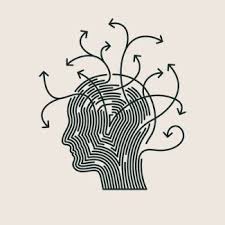4 Hazardous Effects of Social Media You Weren’t Warned About
Social media is deeply embedded in daily life, offering entertainment, connection, and a sense of belonging at the touch of a screen. When used intentionally, it can be a helpful tool. However, when social media use becomes excessive or habitual, it can subtly shape emotional well-being, self-perception, and mental clarity in ways that are not always obvious. Beneath curated images, viral humor, and endless scrolling, many people struggle with a growing concern that often goes unrecognized: an unhealthy relationship with social media.
I often invite clients to explore the story they tell themselves about their social media use. Many people initially describe it as harmless or necessary, yet over time, they notice feeling more anxious, distracted, or emotionally depleted. This shift does not reflect a personal failure. It reflects how powerful these platforms are and how easily they can influence thoughts, emotions, and behaviors.
How Social Media Can Impact Mental Health
Even without meeting criteria for addiction, frequent or unmindful social media use can have meaningful effects on mental health.
Increased anxiety
Constant exposure to alarming news, conflict, and emotionally charged content can keep the nervous system in a heightened state of alert. From a mindfulness perspective, this sustained activation can make it difficult to feel grounded or present, even when the phone is put down.
Erosion of self-esteem
Social media often presents carefully edited highlight reels of other people’s lives. From a cognitive-behavioral lens, repeated comparisons can reinforce distorted beliefs such as “I am not doing enough” or “I am falling behind,” which may contribute to shame, inadequacy, or low self-worth.
Disrupted sleep patterns
Late-night scrolling is common and often unintentional. Exposure to screens and blue light interferes with the body’s natural sleep rhythms, while mental stimulation makes it harder for the mind to settle. Over time, poor sleep can intensify anxiety, irritability, and low mood.
Reduced attention and mental clarity
Fast-paced content trains the brain to seek constant novelty and immediate gratification. This can make sustained focus more difficult and increase distractibility, which many people notice in work, relationships, and everyday tasks.
These effects often develop gradually. People may begin to feel mentally foggy, emotionally drained, or overwhelmed without immediately connecting those experiences to their screen habits. The phone becomes a constant companion, yet offers diminishing returns.
When Social Media Use Becomes a Mental Health Concern
Recognizing that social media use has become problematic is an important and empowering step. I work from the belief that change does not require eliminating social media entirely. Instead, therapy focuses on reshaping the relationship with technology in ways that align with personal values, emotional health, and long-term well-being.
Through a combination of narrative therapy, CBT, positive psychology, and mindfulness, I help clients identify unhelpful patterns, challenge automatic thoughts, and reconnect with strengths that may have been overshadowed by constant digital noise. Together, we work toward building intentional boundaries, increasing present-moment awareness, and replacing compulsive scrolling with habits that support balance, clarity, and fulfillment.
If you feel that screens are competing for your attention, peace of mind, or sense of self, you are not alone. Support is available. I am here to help you reclaim your time, focus, and emotional well-being by developing a healthier, more intentional relationship with social media.




